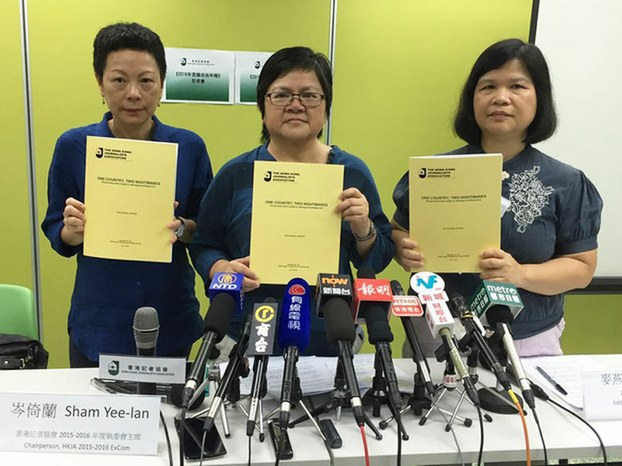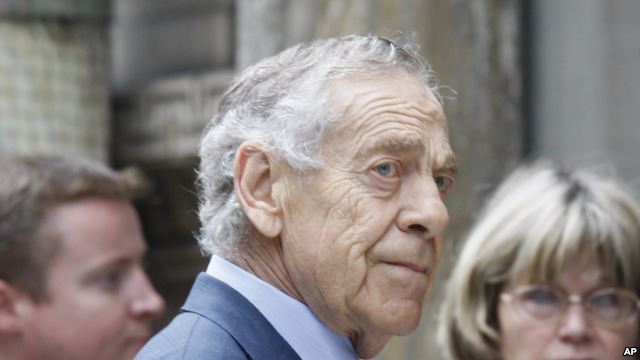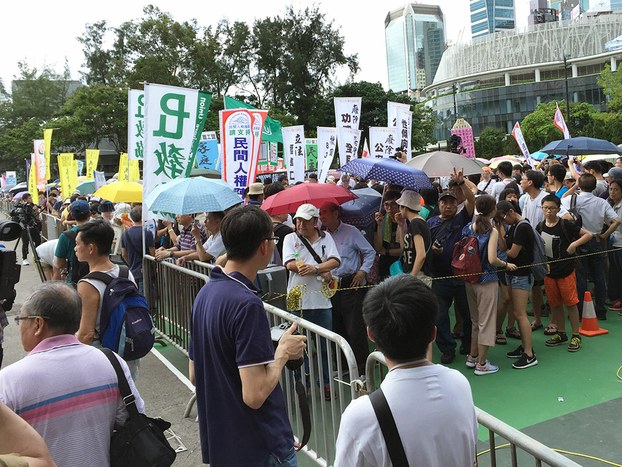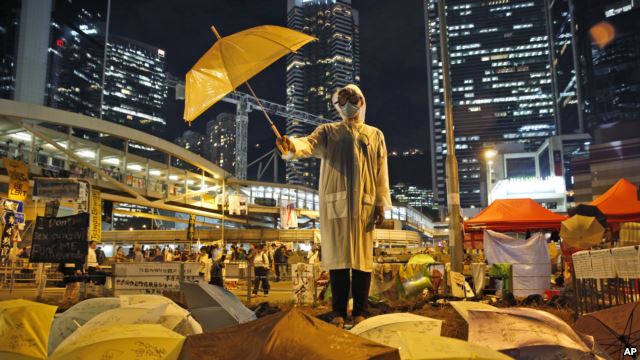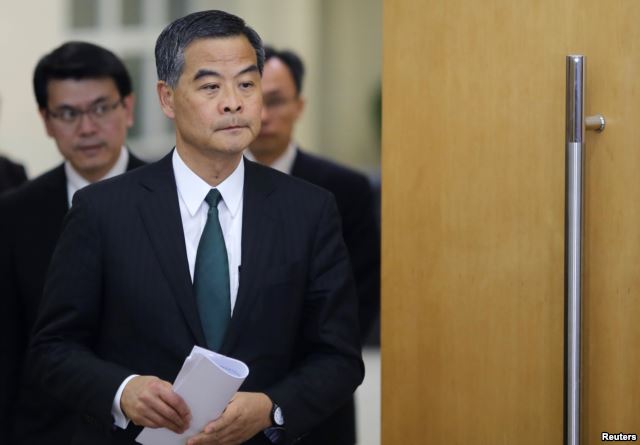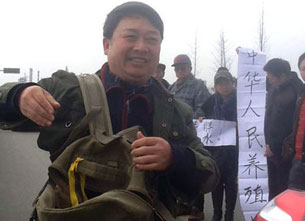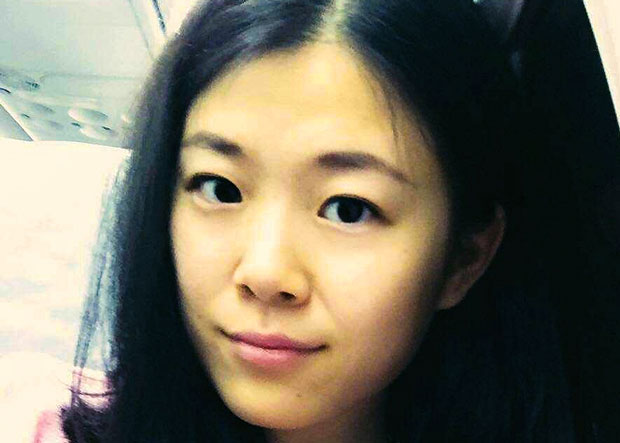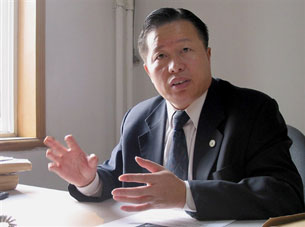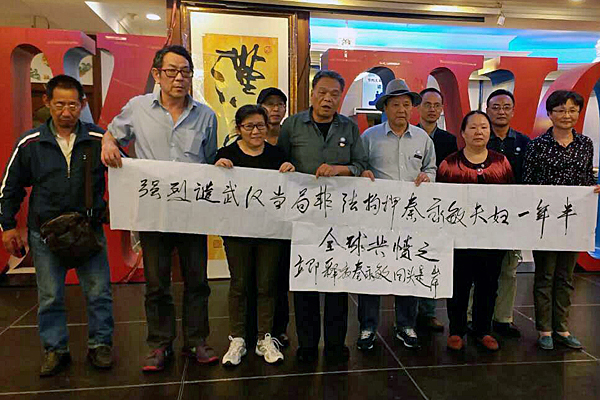
Chinese activists call for the release of veteran democracy campaigner Qin Yongmin in an undated photo. Photo courtesy of an activist
‘Disappeared’ Chinese democracy activist Qin Yongmin is being secretly held at a police-run detention center in the central city of Wuhan, RFA has learned.
Qin’s whereabouts were unknown since he went missing in Jan. 19, 2015, amid unconfirmed reports that he had been tried in secret on charges of “incitement to subvert state power.”
But Qin’s family and fellow activists have continued to hunt for him, and his lawyers have now tracked him down to an unnamed entry in a logbook at the Wuhan No. 2 Detention Center.
“There wasn’t even a name logged there, just a number, 701,” Qin’s brother Qin Yongchang told RFA on Friday. “Now the lawyers can’t get in to meet with him.”
The family has received no official notification of Qin’s detention, and only discovered where he is being held because a lawyer they hired made a speculative application to meet with him at the detention center, Qin Yongchang said.
Fellow activist Pan Lu, who works at the Rose China group founded by Qin, said the detention center is unlikely to be acting unilaterally, however.
“It is likely that they received a notification under the stability maintenance system that they mustn’t give out any information regarding Qin Yongmin,” Pan said.
“Two lawyers hired to represent him were making calls every day, and they happened to call the Wuhan No. 2 Detention Center, although the center wouldn’t allow them to visit,” he said. “They only admitted that he was still being held there, and that his was a special case.”
Pan said the authorities’ treatment of Qin was unacceptable.
“It doesn’t matter how special he is; he’s still entitled to due legal process,” he said.
Wife’s whereabouts unknown
Qin, 59, who has already served a lengthy jail term for helping to found the banned opposition China Democracy Party (CDP), was taken from his home by state security police officers on Jan. 21.
Qin’s wife Zhao Suli was also taken to an unknown location in April 2015, prompting a nationwide “search for Qin Yongmin” by fellow rights activists, who collected hundreds of petition signatures.
Her whereabouts remain unknown, and activists have been unable to confirm whether Qin has been tried or not.
A contemporary of exiled dissident Wei Jingsheng, Qin was sentenced to eight years in prison for “counterrevolutionary propaganda and subversion” in the wake of China’s Democracy Wall movement in 1981.
He served a further two years’ “re-education through labor” in 1993 after he penned a controversial document titled the “Peace Charter.”
Qin then served a 12-year jail term for subversion after he helped found the CDP in 1998 in spite of a ban on opposition political parties by the ruling Chinese Communist Party.
‘Stability maintenance’ regime
According to the Civil Rights and Livelihood Watch group, China detained or placed under surveillance more than 260 people last month, under its ongoing “stability maintenance” regime that seeks to clamp down on activists before they act.
Dozens of activists and high-profile figures, including veteran journalist Gao Yu, Tiananmen Mothers victims’ group founder Ding Zilin, and former top government aide Bao Tong were detained or otherwise restricted ahead of the politically sensitive June 4 anniversary of the Tiananmen massacre, the group said.
“Large numbers of people were detained or otherwise placed under restrictions or surveillance,” group founder Liu Feiyue said on Friday.
“In the case of Ding Zilin, they took away her cell phone and issued her with one of theirs, which was set to receive only calls from state security police and the hospital,” he said. “The main thing is that this was all happening just before June 4.”
A draconian new National Security Law passed last July allowed detainees to be held for up to six months at an unknown location with no contact with relatives or lawyers, in cases involving subversion or spying.
But rights groups say the definitions of such crimes are broad enough to allow police to use them against political dissidents and peaceful rights activists.
Reported by Qiao Long for RFA’s Mandarin Service. Translated and written in English by Luisetta Mudie.
Source: http://www.rfa.org/english/news/china/veteran-democracy-activist-tracked-down-to-wuhan-detention-center-06102016112829.html
